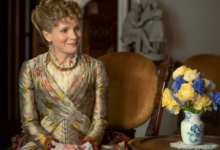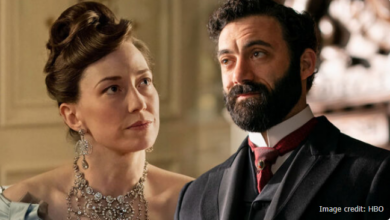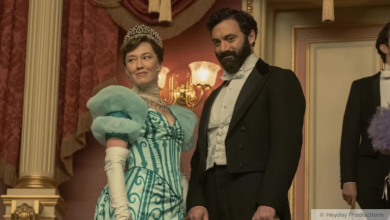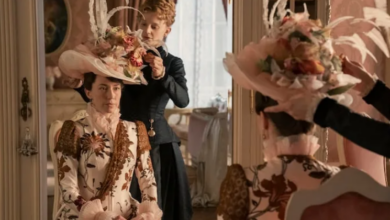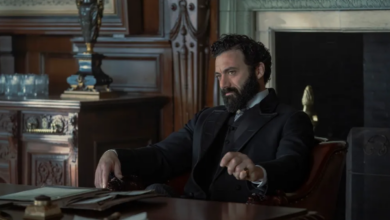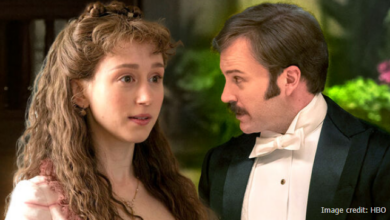Carrie Coon on Her ‘Gilded Age’ Character: “I Love That People Don’t Like Her”
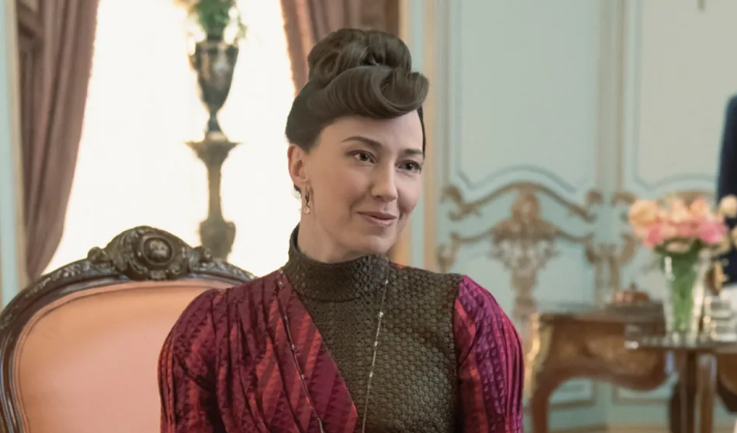
Coon, who stands out among the HBO show’s huge ensemble in playing the rare female antihero of that age: “She calls people out on their BS.”
On HBO’s The Gilded Age, Carrie Coon stands out among the stacked ensemble cast (she was just one of 34 players to receive a SAG Award nom for best drama ensemble this year), in part because her lead role of Bertha Reynolds allows her to play a rare kind of character on TV these days: the female antihero. A member of the new-moneyed elite thanks to her robber baron husband, George (Morgan Spector), Bertha ruffles the feathers of Manhattan’s social hierarchies — particularly in season two, when an all-out public war erupts between Bertha and Lady Astor (Donna Murphy) as they favor dueling opera houses. Coon spoke with THR about why it’s fun to play a character you can’t help but root for.
What’s your favorite part about Bertha Reynolds?
I love that she calls people out on their BS. That’s the most fun, when she really cuts through the social expectations and just calls it how she sees it. But I also love that she gets to be so vulnerable with George. We got to see a little more of that in season two, which was a lot of fun to show that juxtaposition, how tough she is to the outside world versus when she lets her guard down. She’s so uncompromising. She’s so myopic. I love that people don’t like her.
She really is the show’s antiheroine.
What’s so funny is that you do find yourself rooting for the ruthless capitalists in this show, because they’re driving the narrative. I think, fundamentally, we all want to be people of action — or at the very least we respond to people of action. I think people root for George and Bertha totally in spite of themselves. And also they root for their marriage, because their marriage is super sexy. It’s also ambitious, supportive and respectful. Sadly, we live in a time when respect is rare. But it’s attractive.
Does getting into hair and makeup and period-specific costumes instantly put you into character?
I started off as a very cerebral actor. I love research. That was my favorite part of the job. Even when I was working on The Leftovers, I had a touchstone in [the novel by Tom Perrotta]. I don’t have any time for prep anymore. We’re not given much time typically, and I have two kids and a marriage. All that stuff is so crucial now. It’s the boots, it’s the corset, it’s the wig, and really you’re 75 percent of the way there. Mix that alchemy to make a character. I relied so heavily on how fortunate we are to have our designers, who are so spectacular. They create these very lush environments for us to be in, and so my imagination doesn’t have to do as much work.
You bring so much character to her voice. How did you establish how she speaks?
There was a scene very early where I’m waltzing into a room — I might have even had a little bit of a cold, honestly, so my voice was really sitting low already. What an interesting moment for me to arrive. She just undercuts everybody in every room by having the lowest voice. That just really makes sense for her.
Especially for a woman to succeed in the time in which Bertha lives.
Of course, we’re talking about a very certain class of women — certainly women of lower classes, immigrant women, Black women, they were all working their butts off all the time and barely surviving. It was a time of tremendous exploitation. People like Bertha were relegated to the sphere of social fundraising, social work, social climbing. People often say, “Why is she focusing all her energy on the opera?” Well, there was nothing else for her to do. She couldn’t vote! Yeah, she could have been a CEO or senator, but she was born in the wrong time.
